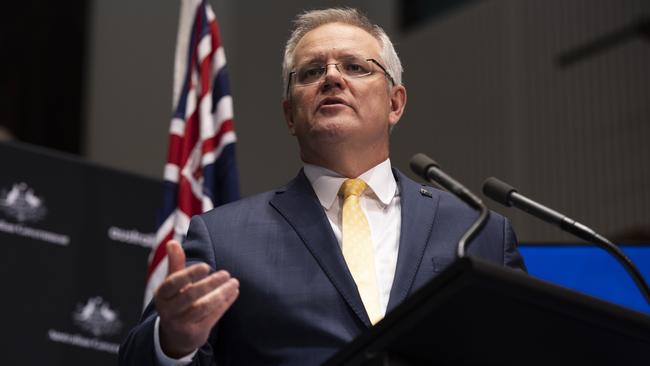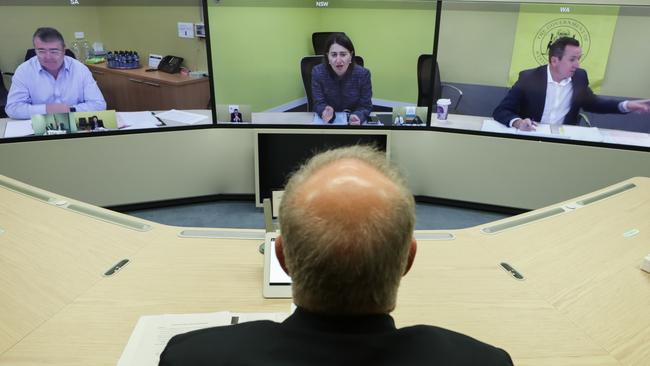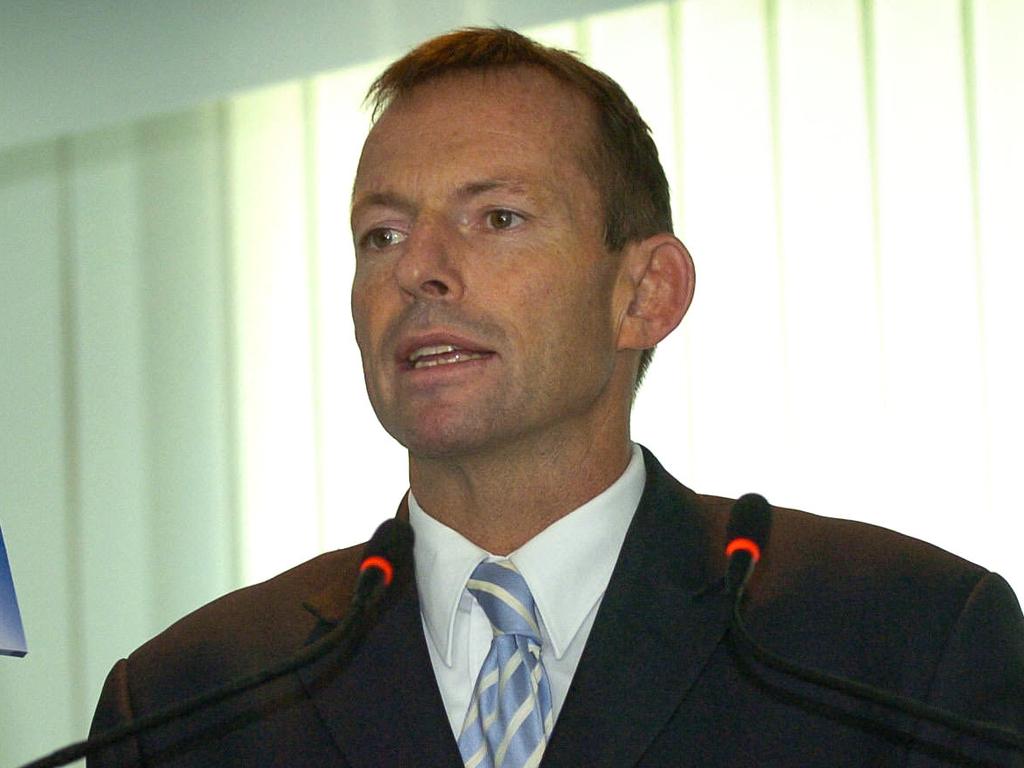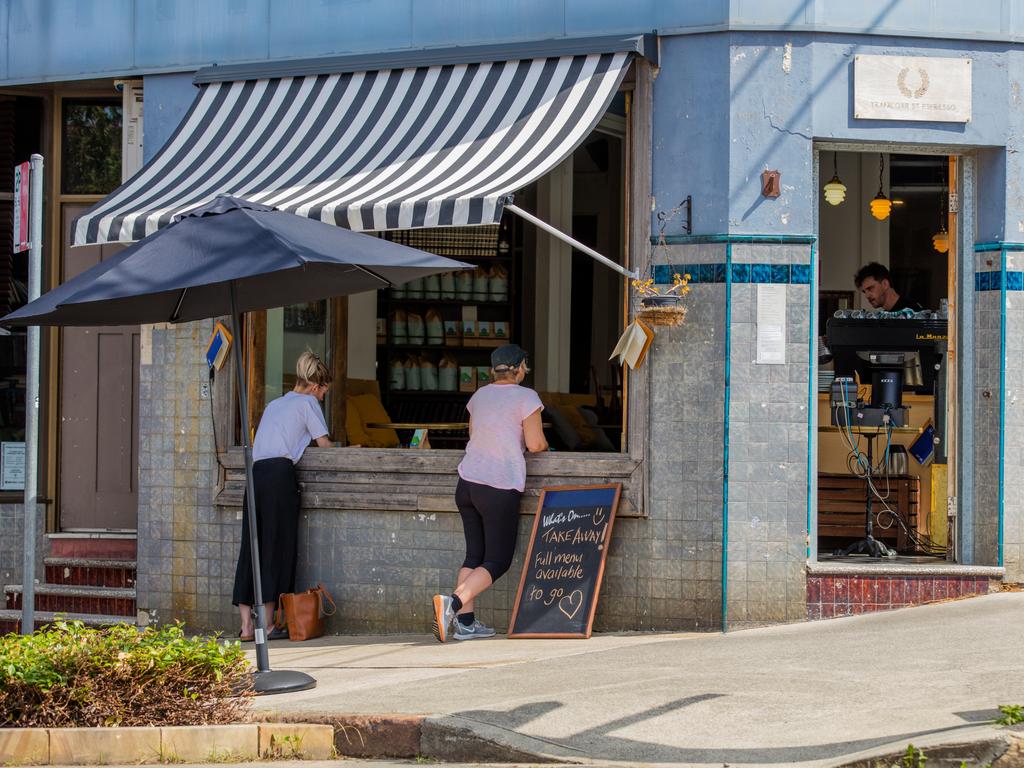Slow crawl out of COVID hole as leaders map recovery
Three-stage plan for rolling back restrictions over next two months to be unveiled after national cabinet meeting today.

The national cabinet will today pave the way for a return to retail trading, greater freedom of movement within states and getting people back to work, in a landmark meeting to map out a plan for economic recovery.
But Australians will face weeks of tough restrictions in some states as nervous premiers resist reopening the economy, fearing a resurgence in infections despite new cases being reduced to a trickle and just 23 people with the virus in intensive care across the nation, using only 1 per cent of available beds.
A three-stage plan mapping out a framework for rolling back restrictions over the next two months is likely to see a first move to lift bans on outdoor gatherings, intrastate travel and a return to school for most children across the country within weeks.
The Australian understands that returning children to school will be a major focus of the national cabinet meeting, as it will open the way for more people to re-enter the workforce. Other priorities are believed to be opening up traders such as coffee shops to boost economic activity.
The plan will involve a four-week timetable followed by staged easing, with the ambition that by July most restrictions except mass gatherings will be lifted. It will be up to the states when they dismantle their border closures. International travel is not even on the horizon for consideration.
Scott Morrison’s shift to a COVID-19 recovery footing with the flattening of the infection curve comes as new data shows the depth of the economic damage. Banks have deferred more than $160bn in mortgages and business loans in the past six weeks.
Almost half the workforce is on government payments through the JobKeeper scheme or JobSeeker payments, with an extra million people now on welfare.
Business groups are calling on the national cabinet to ensure the states and territories move together in restarting the economy at its crucial Friday meeting.

States and territories have moved at differing paces in re-opening schools. NSW and Queensland this week announced a phased approach to class re-openings from May 11 while Victoria stood firm on learning from home during term two. Western Australia and South Australia have resumed face-to-face classes with high rates of attendance.
Different rules on social distancing will also be in place for Mother’s Day on Sunday, with Victorian Premier Daniel Andrews urging people not to visit family and saying he would not see his own mother, who is in her mid-70s, “even if it was lawful”.
Queensland will ease restrictions on the number of people visiting other households on Sunday, permitting groups of five from one household to visit another household. Queenslanders will also be permitted to travel further than 50km from their homes to make visits, but they will not be permitted to move around the community they are visiting.
NSW Premier Gladys Berejiklian said she would not modify or lift restrictions on the number of people allowed to gather indoors or outdoors for Mother’s Day.
Different jurisdictions will continue to move at their own pace, with the Northern Territory and Western Australia well ahead of NSW and Victoria.
On Thursday Mr Andrews, who has been the most resistant to unwinding restrictions, flagged moving as early as Monday to relax some of the rules. Western Australia will deliver a road map for lifting its coronavirus restrictions on Sunday, after the state recorded an eighth straight day without any new cases, while the ACT moved to reopen schools on May 18.
Ms Berejiklian said that despite the low number of new cases easily traced to previous outbreaks, NSW would not immediately implement any easing of restrictions made by national cabinet.
“And while national cabinet is considering easing … some restrictions from Friday … I doubt very much that NSW will be in a position to implement anything before Mother’s Day, and I want to make that clear,” the Premier said.
South Australian Premier Steve Marshall said the first restrictions to be lifted in his state would be on intrastate travel, to allow people to take holidays.
Several major retailers are preparing to reopen shops from Monday in anticipation of a relaxation of restrictions, while many large businesses are planning for a staged return of workers to offices beginning next month.
Businesses groups are calling for consistency of regulations and lifting of restrictions across all state and territory jurisdictions. Australian Chamber of Commerce and Industry chief executive James Pearson said it would be problematic if there were different restrictions across Australia.
“Increasing numbers of businesses do business across state lines,” Mr Pearson said. “They have customers or suppliers in different parts of the country, and moving people with goods as quickly and efficiently as possible is just an essential part of doing business in modern Australia.
“The modern Australian economy depends on operating as seamlessly as possible and artificial barriers between states and territories, which is what we have at the moment, only cause more expense and make it harder for businesses to restart and (to) keep businesses in employment.”
Mr Pearson said there needed to be more clarity around how social distancing measures should apply in workplaces.
“Is it 1.5 metres between people or is it one person per four square metres?” he said. “The two measures are actually quite different and they are applied in different workplaces. So we would like to see consistency and clarity there.”
Australian Banking Association chief executive Anna Bligh said the financial services sector wanted clarity about “what comes next”. “As soon as businesses know when they can open, how long they can open for, then they can really start to plan,” Ms Bligh told Sky News.
“I suspect (governments) will be quite cautious, which is not a bad thing. But I do think certainty and clarity is what the business sector needs to start thinking about restocking, getting staff back on rosters and starting to advertise to their customers about when they can open.”
Ms Bligh said the pandemic had been “catastrophic” to business, with banks allowing deferrals on loan repayments to nearly 200,000 companies.
AiGroup chief executive Innes Willox called for the immediate lifting of state border closures and a road map showing a phased reopening of offices, cafes, bars and restaurants.
Council of Small Business Organisations Australia chief executive Peter Strong said the Victorian government needed to explain why it was unwilling to consider easing restrictions.







To join the conversation, please log in. Don't have an account? Register
Join the conversation, you are commenting as Logout